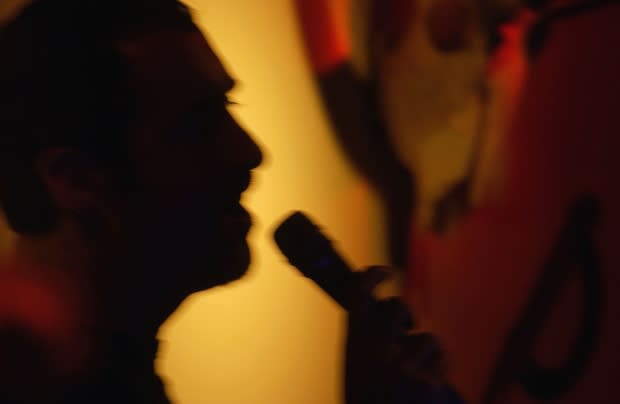With daily case total highest since June, Quebec bans karaoke, orders bars to keep customer logs
The Quebec government formally announced a ban on karaoke in public venues Friday, and will also now require bars to keep a register of customers — a measure that had previously been recommended but not obligatory.
The decisions, which some bar owners said they learned of in meetings with public health officials on Thursday, are intended to reduce the risk of COVID-19 transmission.
Quebec recorded 219 cases on Friday, the highest daily number since June 6, prompting Premier François Legault to once again urge residents to stay vigilant and avoid large social gatherings.
The province has already announced a crackdown on those who don't wear masks in indoor public spaces.
In announcing the ban on karaoke, the Quebec Health Ministry cited the projection of respiratory droplets when singing and the tendency among singers to share microphones. It also noted recent cases of transmission connected to karaoke events.
A karaoke night held at a Quebec City bar on Aug. 23 has been linked to more than 80 cases of COVID-19.
The ban applies to bars but also to rented spaces and community halls.
"Due to the real risks of transmission of COVID-19 represented by karaoke activities, whether in bars or elsewhere, we have decided to suspend these in public places throughout Quebec," Dr. Horacio Arruda, Quebec's public health director, said in the release. "This measure is part of our preventive actions in the face of a probable second wave of cases.
"However, it does not prevent the establishments concerned from continuing their other activities, provided they comply with current guidelines."
The release also says the government strongly discourages karaoke activities held at private venues that involve people who don't live together.
All Quebec bars must now keep a register of their customers, the ministry says.
That rule, which makes it easier for public health authorities to track down people who may have been in contact with an infected person, takes effect immediately.
The government first encouraged the concept in early July, but it was not mandatory.
'Another blow to our industry'
Some bar owners, who have faced difficult business conditions after a prolonged period of complete closure, are unsurprisingly unhappy about the karaoke ban.
Jean-Jacques Beauchamp, CEO of the Corporation des propriétaires de bars, brasseries et tavernes du Québec, a group representing bar owners, called the rule "another blow to our industry" in an interview with CBC News on Thursday.
"No karaoke. No dancing. Fifty per cent capacity. Reduction of opening hours," Beauchamp said. "It means what? Less clients and less revenue."

Danny Jobin, the owner of Le Date Karaoke, a bar in Montreal's gay village, wondered about compensation given the impact the rule will have on his business.
"Are we still going to pay the same amount for the permits?" he asked.
Jobin said he spent around $15,000 to make his venue safe, including erecting a transparent barrier between the stage and the audience and disinfecting equipment after each performance. He said the losses he now faces will be significant.
"I have a small amount of people who come during the day for a cocktail on the terrace — summertime," Jobin said. "But nighttime, no karaoke means no people. No business at all."

